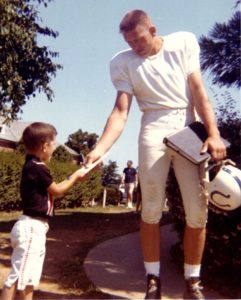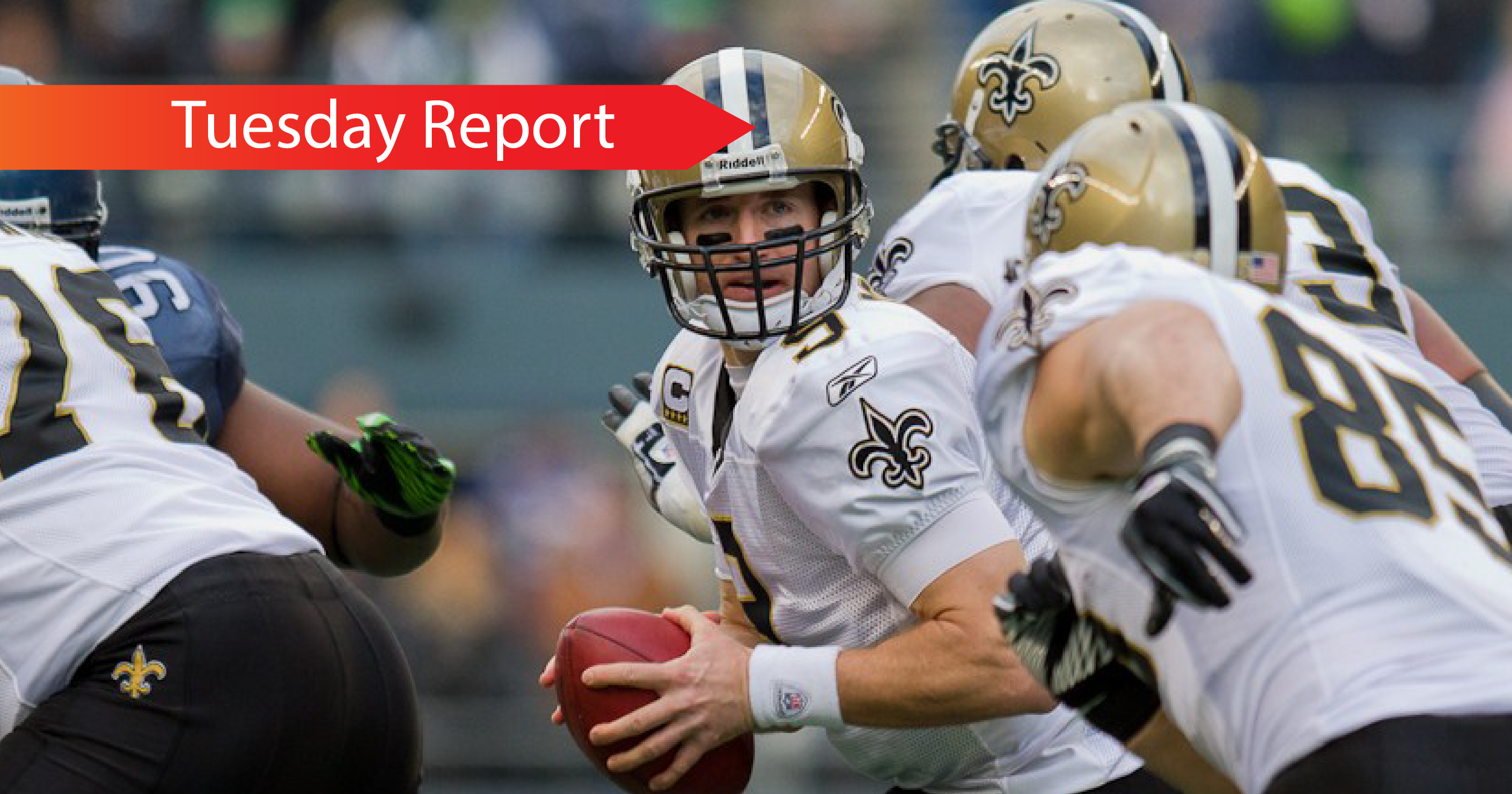Leadership Teams that Operate like NFL teams Win the Toughest Games
“Big Game This Week… So Let’s Cancel The Team Meeting.”
On October 7th New Orleans Saints Quarterback Drew Brees threw a single pass that broke a 52-year record. This moment in sports history was the result of huge talent and a staff of the best coaches. Unfortunately, the most talented business teams often walk onto the field of business and play it by ear. In the moment of crisis, often their first act is to cancel the team meeting.
In NFL Football it’s unimaginable to hear someone say, “Let’s forget about passing practice and running plays. We don’t have time for video replays of last week’s game. Who needs special teams? Let’s just go out there and draw X’s and O’s in the dirt, and see if we can whip the other team.”
Yet I have watched in horror as million-dollar corporate leaders have doubled down, thrown their own untrained team into the fray, and worked from memories of college courses and long-forgotten bosses.
October 7, 2012 was a big day in NFL history. That was the Sunday that Drew Brees, quarterback of the New Orleans Saints, broke Johnny Unitas’ record for most consecutive games throwing a touchdown pass.
When Brees threw that pass against the Chargers in the first quarter, he broke a record that had stood for 52 years. And, as Brees stated immediately afterwards, it wasn’t his achievement alone; it took an entire team. It took a high performing team that delivers results season after season. No matter how well Brees throws, he needs team members to block, catch and run with the ball.
I bet the Saint’s coaching staff didn’t send an email to the team, one week before that potentially record-breaking game, and say “Big game on Sunday guys, and well, we’re pretty busy, a lot of travel coming up, so we’re canceling the team meeting. Oh, and we’re canceling practice this week too.”

That didn’t happen. And practice is where business often gets it wrong, and sports gets it right: A team that is going to deliver win after win, a team that achieves Super Bowl titles and breaks records–has to meet together, practice together, and run plays together. It just doesn’t happen by accident.
I can’t tell you how often I hear an executive say, “We’re going to have to cancel the executive team meeting this week; we’ve got a big issue with the Board,” Or, “We have too much going on to do any training.” Or, “We really can’t afford coaches here. Maybe when we’re profitable we can do that.” And you hear it too–don’t kid yourselves! There’s not a coach or a team in the NFL, or any other sports league, that would tolerate that mentality for a minute.
When the stakes are high, leadership teams need to meet more, not less. They need to run plays of strategy in the practice field of their boardrooms. They need to debate their strengths and weaknesses, just as a sports team dissects replays of past games. They need high-powered executive coaches to help top executives become even more effective.
But all too often, at the moment an executive team needs to invest the time to debate and discuss the biggest issues facing them, they instead cancel executive team meetings in favor of endless minutiae and activity, squandering the little time they do meet in recitations of updates and tactics.
And just how many passes do you suppose Brees threw on the practice field for every one of the passes that went into his record-breaking series? Many, many, I can assure you. Yet business leaders all too often say they are too busy to train, too busy to practice, too busy to run the plays that lead to success. The results—missed market opportunities, lost customers, cost over-runs, slipped deadlines—are the dropped balls and interceptions of business.
Next time you find yourself saying the equivalent of “Big game Sunday, so we’re canceling the team meeting,” stop and think. Do you really want to break that record or not?






